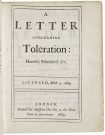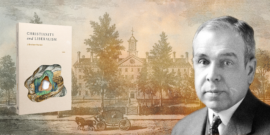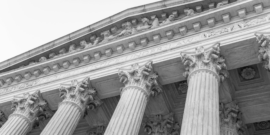One can find rationalistic, empirical, and revelational aspects in John Locke’s thinking--but that doesn’t make him incoherent.
John Roberts hasn't entirely lost his fight for judicial moderation.
The institutions of political and individual freedom that the American founders established on these shores are Locke's most lasting legacy.
The new manuscript will not solve any of the Lockean paradoxes, it does provide us with a glimpse into his reasoning about Catholics in politics.
The Aristotelian argument for democracy relies on our deliberative capacity, that is, on our willingness to learn from one another.
Harry M. Clor (1929-2018) was a humble political philosopher and a great teacher.
D.C. Schindler's Freedom from Reality makes the startling claim that John Locke and his modern inheritors offer a us demonic kind of liberty.
If the state can seize citizens' arms at will, all property rights are at risk.
One hundred years later, conservative Protestants have spent a good chunk of last year commemorating Machen’s Christianity and Liberalism.
An imported "oppressor-oppressed" ideology ran smack-dab into the intensely democratic and egalitarian Australian political order.
While purporting to expand one set of individual rights, Sullivan did immense harm to another.










